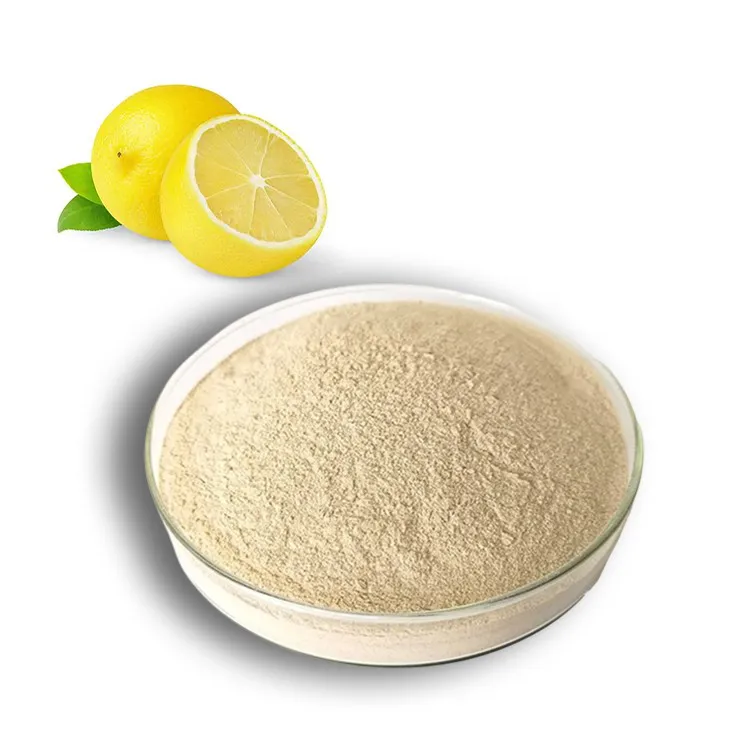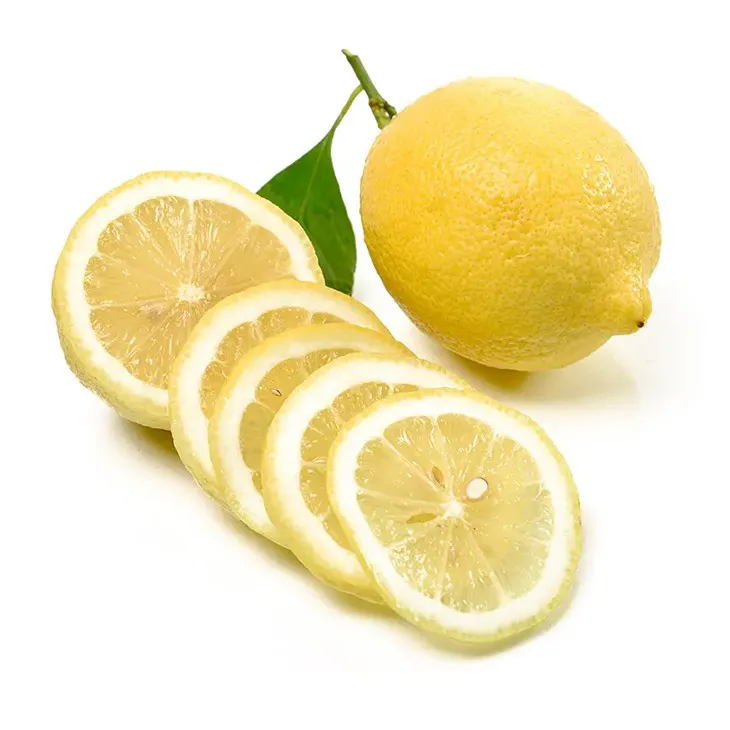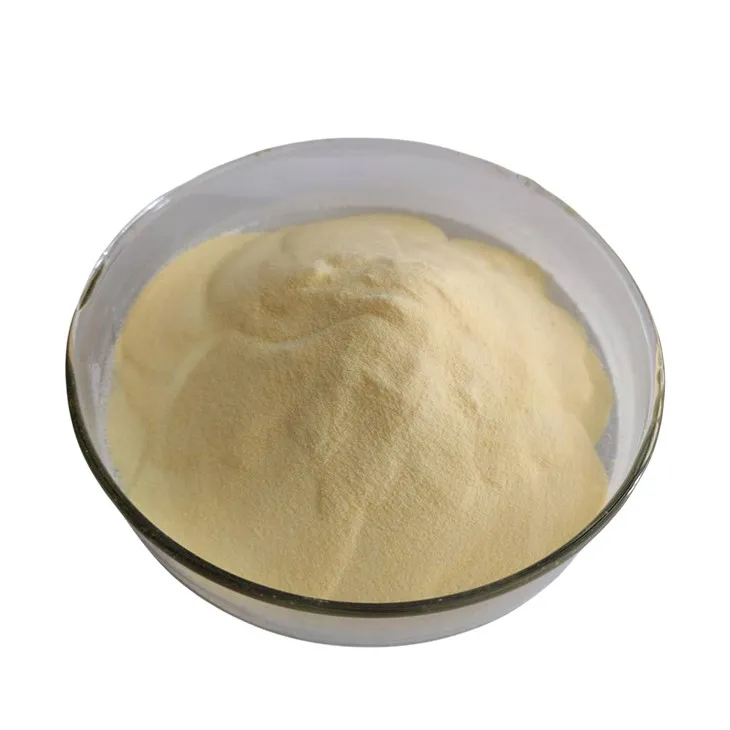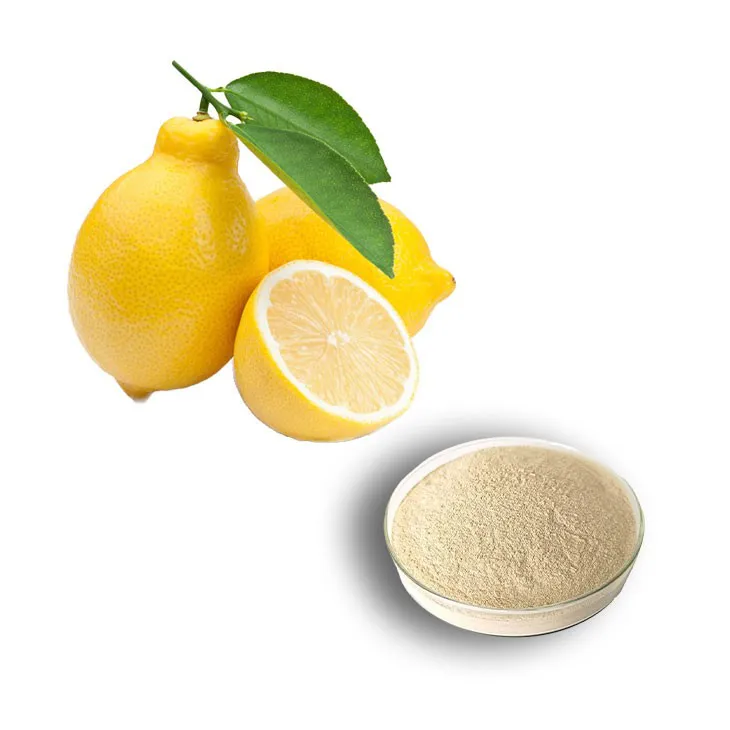- 0086-571-85302990
- sales@greenskybio.com
Two Bases for the Quality of Lemon Extract: Potency and Purity.
2024-12-10

1. Introduction
Lemon Extract has found its way into a diverse range of industries, from food and beverage to cosmetics and alternative medicine. The quality of this extract is not a one - dimensional concept but rather a complex interplay of various factors. Among these, potency and purity stand out as the two fundamental pillars upon which the overall quality of Lemon Extract rests. Understanding how these two aspects function and interact is crucial for producers, consumers, and regulators alike.

2. Potency of Lemon Extract
2.1. Definition and Significance
Potency, in the context of lemon extract, refers to the strength or concentration of the active components present in the extract. These active components are what give lemon extract its characteristic properties. For example, in the food industry, the potency of lemon extract determines its ability to impart a strong and authentic lemon flavor. In aromatherapy, a potent lemon extract can have a more pronounced effect on mood elevation and relaxation. In skincare, high - potency extracts may be more effective in treating certain skin conditions such as acne or hyperpigmentation.
2.2. Factors Affecting Potency
- Source of the Lemons: The variety of lemon used, as well as the growing conditions, can significantly impact the potency of the extract. Lemons grown in ideal soil conditions, with proper sunlight and water supply, are likely to have a higher concentration of the desired compounds. For instance, Meyer lemons are known for their unique flavor profile, and extracts from them may have a different potency compared to regular lemons.
- Extraction Method: Different extraction techniques can yield extracts with varying potencies. Solvent - based extraction methods may extract a wider range of compounds compared to mechanical extraction methods. However, the choice of solvent can also affect the final potency. For example, using a more selective solvent may result in a more concentrated and potent extract of the desired lemon compounds.
- Storage Conditions: Once the lemon extract is produced, how it is stored plays a crucial role in maintaining its potency. Exposure to heat, light, and air can cause degradation of the active components, leading to a loss of potency. For example, if lemon extract is stored in a clear, non - airtight container in a warm and sunny place, the volatile compounds responsible for its flavor and therapeutic properties may evaporate or break down, reducing its potency.

3. Purity of Lemon Extract
3.1. Definition and Importance
Purity in lemon extract refers to the absence of contaminants or unwanted substances. High - purity lemon extract is essential for ensuring safety and maintaining the desired quality. In the food and beverage industry, impurities can lead to off - flavors, which can be a major drawback for consumers. In skincare products, impurities may cause skin irritation or allergic reactions. In addition, in any application where lemon extract is used for its therapeutic properties, such as in herbal medicine, impurities can reduce the efficacy of the treatment and may even pose potential health risks.
3.2. Sources of Impurities
- Pesticide Residues: If the lemons used for extraction are not grown organically or are not properly treated before extraction, there is a risk of pesticide residues being present in the extract. These residues can not only affect the purity of the extract but also pose health risks to consumers, especially if the extract is used in products that are ingested or applied topically in large quantities.
- Heavy Metals: Environmental factors can lead to the presence of heavy metals in lemons. For example, if the soil in which the lemons are grown is contaminated with heavy metals such as lead or mercury, these metals can be transferred to the lemon extract during the extraction process. Heavy metals in the extract can have serious health implications, including toxicity and organ damage.
- Microbial Contamination: Improper handling during the extraction process, such as insufficient sterilization of equipment or unhygienic storage conditions, can lead to microbial contamination. Bacteria, fungi, and other microorganisms can grow in the extract, not only affecting its purity but also causing spoilage and potential health problems if the contaminated extract is used.

4. Interaction between Potency and Purity
The relationship between potency and purity in lemon extract is complex and intertwined. A high - potency extract is of little use if it lacks purity. For example, if a lemon extract has a high concentration of active flavor compounds (high potency) but is contaminated with pesticides (low purity), it cannot be considered a high - quality product. On the other hand, a pure extract with very low potency may not be effective in its intended applications. For instance, a lemon extract that is free of all impurities but has a very weak concentration of the compounds responsible for its therapeutic properties in skincare will not be able to provide the desired results.
Producers need to find the right balance between enhancing potency and maintaining purity. This often involves using high - quality raw materials, implementing strict extraction and purification processes, and ensuring proper storage and handling conditions. For example, a company may choose to source lemons from organic farms to reduce the risk of pesticide residues (maintaining purity) and then use an advanced extraction method to maximize the concentration of the desired compounds (enhancing potency).

5. Measuring Potency and Purity
5.1. Analytical Methods for Potency
- Chromatography: High - performance liquid chromatography (HPLC) and gas chromatography (GC) are commonly used techniques to measure the potency of lemon extract. These methods can separate and quantify the different compounds present in the extract, allowing producers to determine the concentration of key components such as limonene, which is responsible for the lemon's characteristic aroma.
- Spectroscopy: Ultraviolet - visible spectroscopy (UV - Vis) and infrared spectroscopy (IR) can also be used to analyze the potency of lemon extract. These techniques can provide information about the chemical structure and concentration of certain compounds in the extract based on their absorption or emission of light at specific wavelengths.
5.2. Analytical Methods for Purity
- Mass Spectrometry: This technique can be used to identify and quantify impurities in lemon extract. By analyzing the mass - to - charge ratio of different molecules in the extract, mass spectrometry can detect the presence of contaminants such as pesticides, heavy metals, and other unwanted substances.
- Microbial Testing: To ensure the absence of microbial contamination, various tests such as plate count assays and polymerase chain reaction (PCR) - based methods can be used. Plate count assays can determine the number of viable microorganisms present in the extract, while PCR - based methods can detect the presence of specific microbial DNA, allowing for more sensitive detection of contaminants.
6. Industry Standards and Regulations
The importance of potency and purity in lemon extract has led to the establishment of industry standards and regulations. These standards are designed to ensure that consumers receive high - quality products that are safe and effective. In the food industry, regulatory bodies such as the Food and Drug Administration (FDA) in the United States set limits on the acceptable levels of contaminants in lemon extract. For example, they specify the maximum allowable levels of pesticide residues and heavy metals.
In the cosmetics industry, organizations such as the European Union's Cosmetics Regulation have strict requirements for the purity and safety of ingredients, including lemon extract. These regulations require manufacturers to conduct safety assessments and ensure that their products are free from harmful substances. Similarly, in the herbal medicine and aromatherapy industries, there are guidelines and standards for the potency and purity of lemon extract to ensure its therapeutic effectiveness and safety.
7. Conclusion
In conclusion, the quality of lemon extract is fundamentally based on two crucial aspects: potency and purity. Potency determines the effectiveness of the extract in various applications, while purity ensures its safety and quality. The complex relationship between these two factors requires careful consideration by producers, who must find the optimal balance between enhancing potency and maintaining purity. Through the use of appropriate analytical methods and compliance with industry standards and regulations, high - quality lemon extract can be produced and made available to consumers in various industries.
FAQ:
What is the importance of potency in lemon extract?
Potency in lemon extract is very important. It determines the effectiveness in applications such as flavoring, aromatherapy, and skincare. High - potency lemon extract can provide a strong citrus flavor or powerful therapeutic properties.
How does purity affect the quality of lemon extract?
Purity is crucial for the quality of lemon extract. Impurities can cause off - flavors, reduce efficacy, and may even pose potential health risks. So, high - purity lemon extract is necessary for good quality.
Can low - potency lemon extract be used effectively in flavoring?
Low - potency lemon extract may not be as effective in flavoring as high - potency ones. Since potency determines the strength of the citrus flavor it can deliver, low - potency extract might not provide the desired intense flavor.
What are the potential health risks associated with impure lemon extract?
Impure lemon extract may have various potential health risks. For example, impurities could cause allergic reactions in some people. Also, if there are harmful substances as impurities, they could have negative impacts on the body's normal functions over time.
How can one measure the potency and purity of lemon extract?
Measuring the potency and purity of lemon extract can be complex. Potency can be evaluated through chemical analysis to determine the concentration of active compounds related to its flavor or therapeutic effects. Purity can be determined by detecting the presence and amount of impurities through techniques like chromatography.
Related literature
- The Significance of Potency in Botanical Extracts"
- "Purity Standards in Natural Extracts: A Comprehensive Review"
- "Lemon Extract Quality: Assessing Potency and Purity"
- ▶ Hesperidin
- ▶ Citrus Bioflavonoids
- ▶ Plant Extract
- ▶ lycopene
- ▶ Diosmin
- ▶ Grape seed extract
- ▶ Sea buckthorn Juice Powder
- ▶ Fruit Juice Powder
- ▶ Hops Extract
- ▶ Artichoke Extract
- ▶ Mushroom extract
- ▶ Astaxanthin
- ▶ Green Tea Extract
- ▶ Curcumin
- ▶ Horse Chestnut Extract
- ▶ Other Product
- ▶ Boswellia Serrata Extract
- ▶ Resveratrol
- ▶ Marigold Extract
- ▶ Grape Leaf Extract
- ▶ New Product
- ▶ Aminolevulinic acid
- ▶ Cranberry Extract
- ▶ Red Yeast Rice
- ▶ Red Wine Extract
-
Hawthorn powder
2024-12-10
-
Baicalin
2024-12-10
-
Cranberry Extract
2024-12-10
-
Lemon Balm Extract
2024-12-10
-
Cocoa Extract
2024-12-10
-
Artichoke Extract
2024-12-10
-
White mustard seed extract
2024-12-10
-
Kupilu Extract
2024-12-10
-
Mulberry Extract
2024-12-10
-
Almond Extract Powder
2024-12-10





















